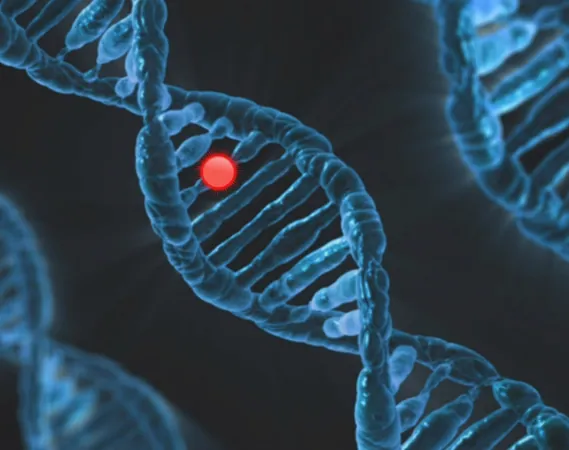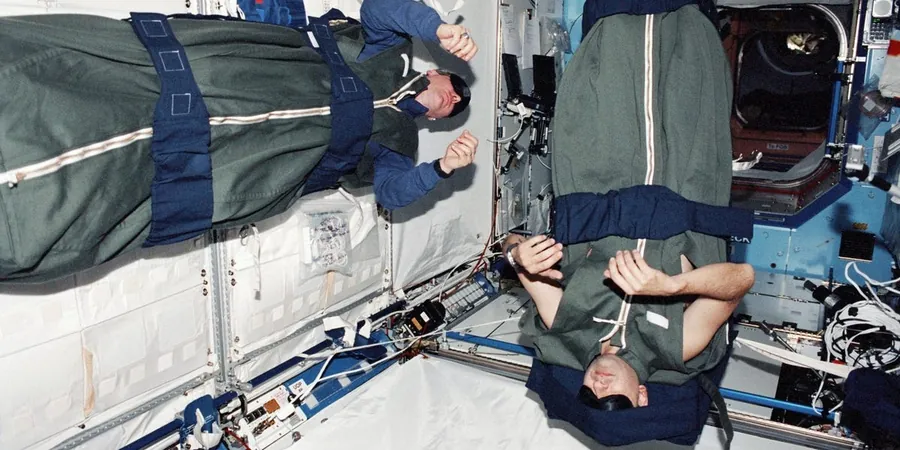
Promising Monoclonal Antibody Therapy Faces Setback in Kidney Transplant Rejection Trials
2024-10-26
Author: Wei Ling
Overview of Chronic Active Antibody-Mediated Rejection (caAMR) in Kidney Transplants
Chronic active antibody-mediated rejection (caAMR) remains one of the leading causes of transplant failure in kidney recipients, yet there are currently no approved therapies specifically targeting this critical issue. Researchers were optimistic about clazakizumab, a monoclonal antibody that inhibits the inflammatory cytokine interleukin-6 (IL-6). Initial Phase II trials suggested that clazakizumab could stabilize kidney function in transplant patients, paving the way for further investigations.
The IMAGINE Trial Findings
Now, as the kidney transplantation community gathered for ASN Kidney Week 2024, the Phase III IMAGINE trial's findings were unveiled—marking the trial as the largest placebo-controlled study to specifically address caAMR in kidney transplant recipients.
FDA Surrogate Endpoint Acceptance
Notably, the IMAGINE trial, which is double-blind and international in scope, achieved a significant milestone: it received acceptance from the U.S. Food and Drug Administration (FDA) for a surrogate endpoint, namely the one-year estimated glomerular filtration rate (eGFR) slope. This made it the first study of its kind to operationalize this benchmark to gauge kidney function changes.
Trial Recruitment and Interim Analysis
The trial aimed for an ambitious recruitment of around 350 kidney transplant recipients diagnosed with caAMR, evenly randomized into two groups receiving either clazakizumab or a placebo. However, in an interim analysis involving about 100 participants who completed one year of treatment, independent evaluators noted that the trial was unlikely to achieve its primary efficacy outcome—the time to composite all-cause allograft loss or irreversible loss of allograft function. Consequently, the data and safety monitoring board recommended halting the study.
Final Analysis and Implications
When investigators conducted a final analysis after the early termination, they discovered that there was no significant difference in the Least Squares mean change from baseline in eGFR at week 52 between the clazakizumab group and the placebo group. Moreover, no safety concerns were raised during the study, which is a silver lining amidst disappointing efficacy outcomes.
Expert Commentary and Future Directions
Dr. Arjang Djamali of Maine Medical Center, the corresponding author, expressed disappointment over these findings but reaffirmed the ongoing commitment to advancing research for kidney transplant patients. "Treating patients with caAMR remains a challenge, and while we are disappointed by these results, we will continue to innovate and seek solutions for these patients."
Looking Ahead: Hope for Future Research
As the field of kidney transplantation navigates through these setbacks, the hope remains that future research will uncover effective therapies for caAMR. The commitment from researchers and trial sponsors, including CSL, underscores the urgent need to address the unmet medical needs of kidney transplant patients facing the harsh realities of rejection. Will we see breakthroughs in the near future? Only time will tell!


 Brasil (PT)
Brasil (PT)
 Canada (EN)
Canada (EN)
 Chile (ES)
Chile (ES)
 Česko (CS)
Česko (CS)
 대한민국 (KO)
대한민국 (KO)
 España (ES)
España (ES)
 France (FR)
France (FR)
 Hong Kong (EN)
Hong Kong (EN)
 Italia (IT)
Italia (IT)
 日本 (JA)
日本 (JA)
 Magyarország (HU)
Magyarország (HU)
 Norge (NO)
Norge (NO)
 Polska (PL)
Polska (PL)
 Schweiz (DE)
Schweiz (DE)
 Singapore (EN)
Singapore (EN)
 Sverige (SV)
Sverige (SV)
 Suomi (FI)
Suomi (FI)
 Türkiye (TR)
Türkiye (TR)
 الإمارات العربية المتحدة (AR)
الإمارات العربية المتحدة (AR)